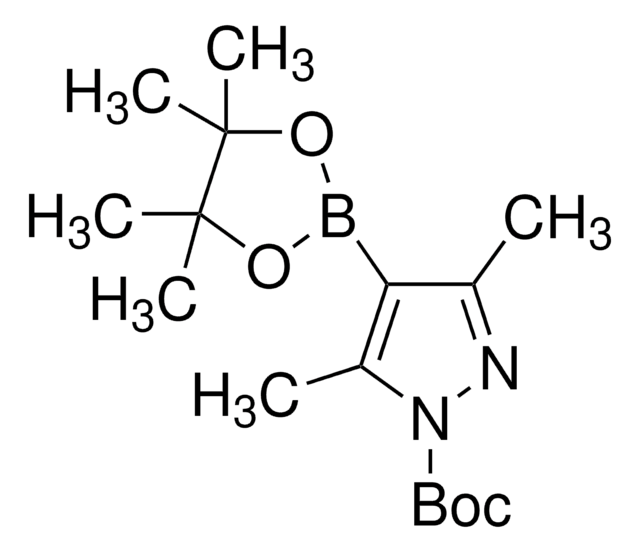905089
In Vitro Protein Expression (iPE) Kit II
Autenticatiper visualizzare i prezzi riservati alla tua organizzazione & contrattuali
About This Item
Codice UNSPSC:
12352200
NACRES:
NA.12
Prodotti consigliati
tecniche
bio NMR: suitable
protein expression: suitable
Livello qualitativo
Temperatura di conservazione
−70°C
Categorie correlate
Applicazioni
iPE-Quick Kit (prod.no. 767824) is available and intended for the confirmation of target protein expression utilizing E. Coli extract before the use of this iPE kit.
This is a protein synthesis system that utilizes E. coli cell extract. It allows easy and efficient protein expression by adding circular or linear DNA as the template DNA, which enables transcription of mRNA with T7 RNA polymerase.
This kit has been developed under license from RIKEN, incorporating their proprietary, advanced cell-free protein synthesizing technology into a kit dedicated to stable isotope labeling.
This kit is not intended to be used for disulfide-containing proteins. For disulfide-containing proteins, refer to prod.no. 797006.
Confezionamento
For information on pricing and availability, please contact Stable Isotopes Customer Service.
Codice della classe di stoccaggio
11 - Combustible Solids
Punto d’infiammabilità (°F)
Not applicable
Punto d’infiammabilità (°C)
Not applicable
Certificati d'analisi (COA)
Cerca il Certificati d'analisi (COA) digitando il numero di lotto/batch corrispondente. I numeri di lotto o di batch sono stampati sull'etichetta dei prodotti dopo la parola ‘Lotto’ o ‘Batch’.
Possiedi già questo prodotto?
I documenti relativi ai prodotti acquistati recentemente sono disponibili nell’Archivio dei documenti.
Eiko Seki et al.
Analytical biochemistry, 377(2), 156-161 (2008-04-01)
Cell-free protein synthesis has become one of the standard methods for protein expression. One of the major advantages of this method is that PCR-amplified linear DNA fragments can be directly used as templates for protein synthesis. The productivity of cell-free
William C Yang et al.
Biotechnology progress, 28(2), 413-420 (2012-01-26)
Escherichia coli cell-free protein synthesis (CFPS) uses E. coli extracts to make active proteins in vitro. The basic CFPS reaction mixture is comprised of four main reagent components: (1) energy source and CFPS chemicals, (2) DNA encoding the protein of
Takashi Yabuki et al.
Journal of structural and functional genomics, 8(4), 173-191 (2008-01-02)
A two-step PCR method has been developed for the robust, high-throughput production of linear templates ready for cell-free protein synthesis. The construct made from the cDNA expresses a target protein region with N- and/or C-terminal tags. The procedure consists only
Takayoshi Matsuda et al.
Journal of biomolecular NMR, 37(3), 225-229 (2007-01-24)
Cell-free protein synthesis is suitable for stable-isotope labeling of proteins for NMR analysis. The Escherichia coli cell-free system containing potassium acetate for efficient translation (KOAc system) is usually used for stable-isotope labeling, although it is less productive than other systems.
Takanori Kigawa et al.
Journal of structural and functional genomics, 5(1-2), 63-68 (2004-07-21)
As structural genomics and proteomics research has become popular, the importance of cell-free protein synthesis systems has been realized for high-throughput expression. Our group has established a high-throughput pipeline for protein sample preparation for structural genomics and proteomics by using
Il team dei nostri ricercatori vanta grande esperienza in tutte le aree della ricerca quali Life Science, scienza dei materiali, sintesi chimica, cromatografia, discipline analitiche, ecc..
Contatta l'Assistenza Tecnica.








